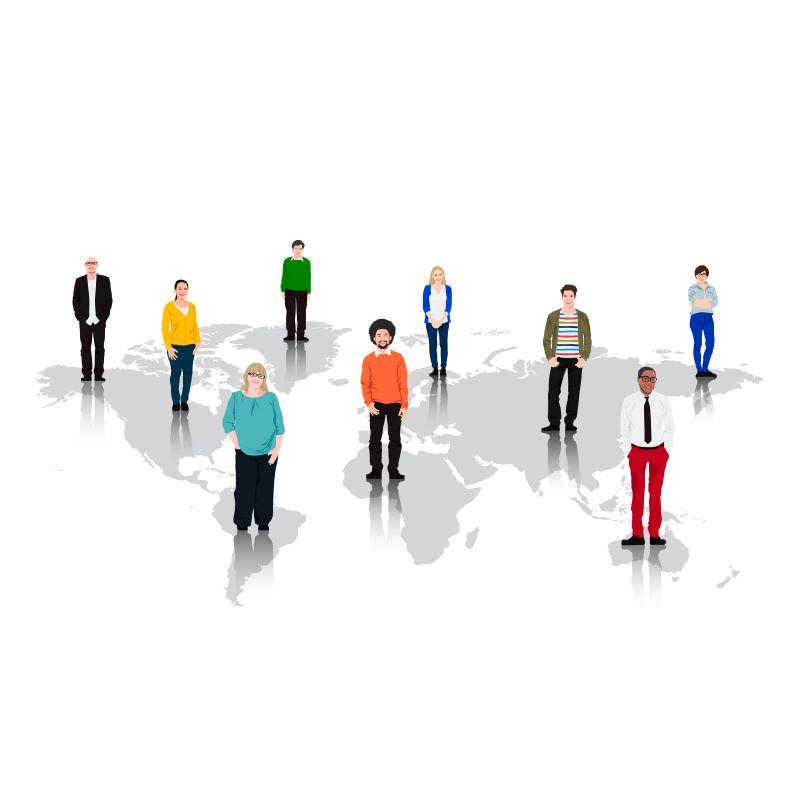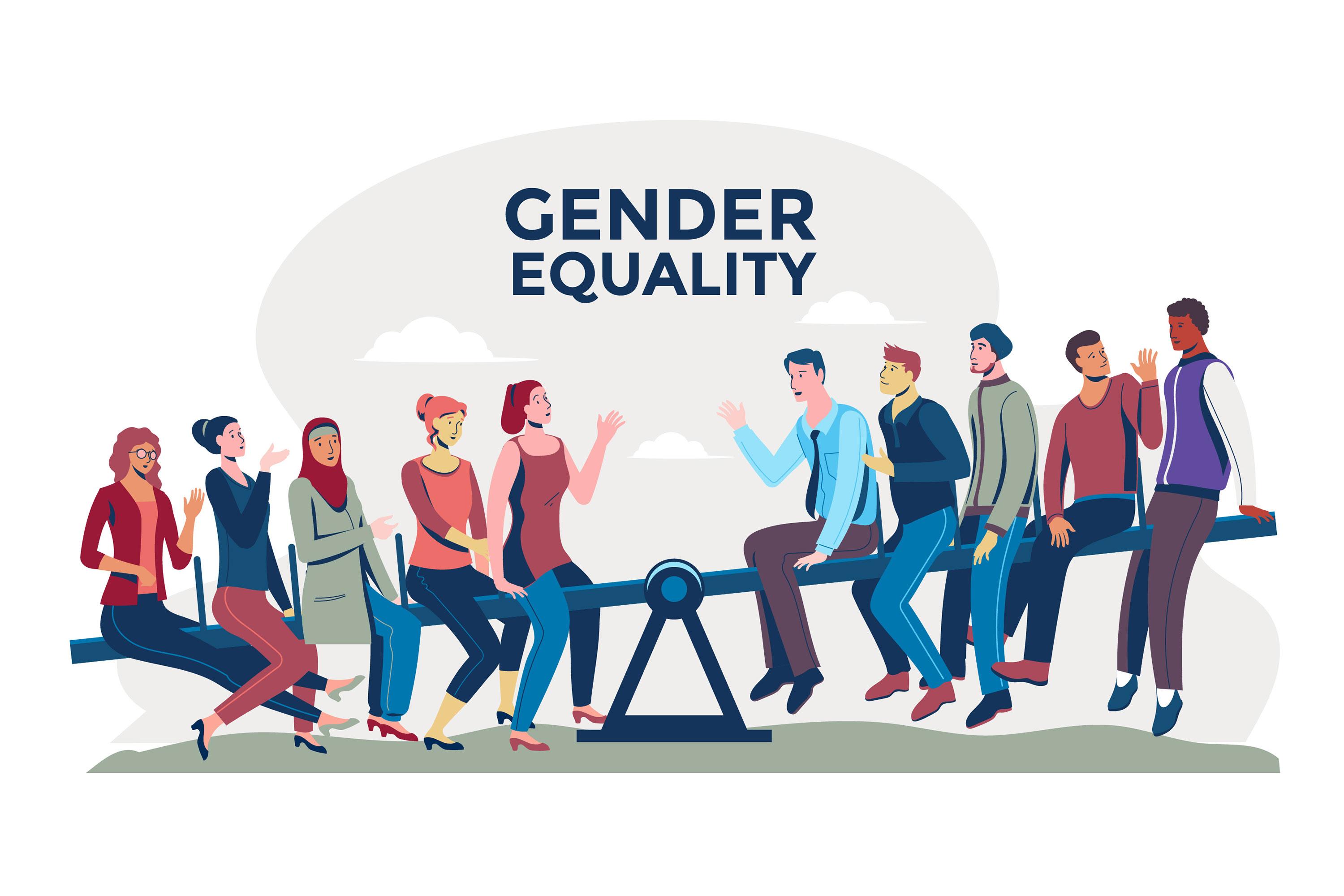Addressing DEIB in the Workplace: The Diversity and Inclusion Imperative in India
In today’s swiftly changing corporate landscape, addressing DEIB (Diversity, Equity, Inclusion, and Belonging) is not just a buzzword; it’s a crucial component of creating a productive and sustainable workplace. DEIB encompasses a broad range of principles and practices designed to cultivate a diverse, equitable, and inclusive workplace. In this blog, we will explore the meaning of DEIB, its significance, the state of diversity hiring in India, and real-world examples that illustrate the progress made and the ongoing challenges in addressing DEIB in the workplace.
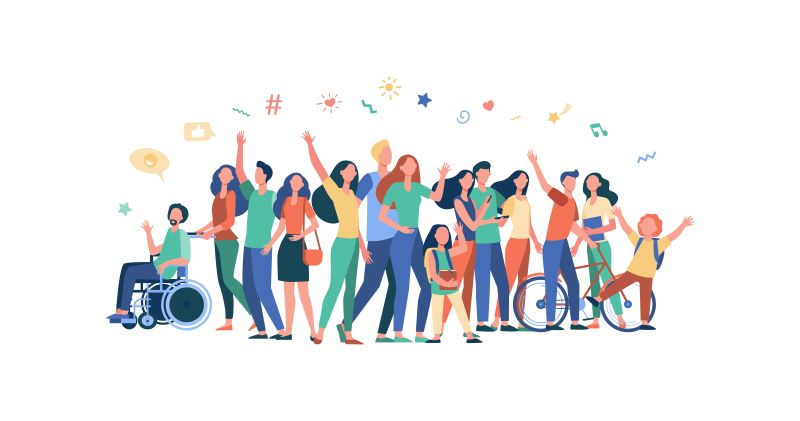
DEIB Meaning
Diversity, Equity, Inclusion, and Belonging are abbreviated as DEIB. Each of these elements contributes significantly to the development of a workplace that is not only demographically diverse, but also equitable, inclusive, and where every employee feels a sense of belonging.
- Diversity in the workplace refers to the presence of individuals from diverse backgrounds, including distinctions in gender, race, ethnicity, age, religion, sexual orientation, and abilities.
- Equity is ensuring that everyone, regardless of origin, has equal access to opportunities, resources, and advancement. It is about redressing historical disadvantages and ensuring that everyone has a level playing field.
- Inclusion is the practice of fostering an atmosphere in which all employees feel valued, respected, and included in decision-making and social activities. Inclusive workplaces embrace diversity and capitalize on it for innovation and productivity.
- Belonging: Belonging emphasizes the significance of employees experiencing a genuine sense of acceptance and connection within the organization. It is not enough to simply be present; one must also feel valued and included.

DEI & B
Diversity, Equity, Inclusion, and Belonging are the fundamental components of Diversity, Equity, and Belonging (DEIB). These elements are interdependent, and they work together to create a workplace culture that is not only diverse, but also equitable, inclusive, and one in which every employee feels like they belong.
The Significance of DEIB in the Workplace
DEIB in the workplace is essential for a variety of reasons, and research and statistics from India demonstrate its significance and influence.
Increased Originality and Creativity
Diverse teams unite individuals with a variety of perspectives, experiences, and ideas. In India, companies with greater gender diversity are 21% more likely to outperform others in terms of profitability, according to a McKinsey study. This demonstrates that diversity fosters creativity and innovation, which are essential for maintaining global market competitiveness.
Increased Employee Engagement and Retention
Employees are more likely to be engaged and committed to their work when they feel valued, respected, and included. Employees in India who perceive their organizations as diverse are 17% more engaged than those who do not, according to a report by Mercer.
Enhanced Decision-Making
Diverse teams are more effective at making decisions. Even in an Indian context, diverse teams outperform non-diverse ones at solving complex problems, according to a study published in Harvard Business Review. This highlights the importance of diversity in decision-making and problem-solving.
Indicative of the Market
Diversity in the workplace can assist businesses in better comprehending and catering to a diverse consumer base. A diverse workforce can be a strategic advantage in India, where numerous cultures and origins coexist.
Legal and Ethical Responsibilities
Employers in India are required by laws such as the Equal Remuneration Act of 1976 and the Maternity Benefit Act of 1961 to ensure gender equality. The violation of these laws may result in severe legal consequences. DEIB practices assist organizations in adhering to these regulations and preserving their reputation.
Diversity Hiring in India
India is a diverse mix of cultures, languages, and religions, and its workforce reflects this. Nonetheless, there are still obstacles to overcome, especially in the context of recruiting for diversity.
- Gender disparities
Gender diversity is an essential aspect of DEIB, and it continues to be a focus in India. According to the Global Gender Gap Report 2021 by the World Economic Forum, India ranks 140th out of 156 countries in terms of gender equality. In response, numerous Indian organizations are instituting diversity hiring initiatives to increase the proportion of women in the labor force.
The “Women Returnship” programme of Tata Consultancy Services (TCS) is an example of a successful diversity recruiting initiative in India. TCS has been actively recruiting women who have taken a career hiatus, offering them training and a supportive work environment to facilitate their reintegration into the workforce.
- Caste and Ethnic Diversity
Caste and ethnic diversity are distinctive to India, and addressing them necessitates individualized approaches. The Scheduled Castes (SC), Scheduled Tribes (ST), and Other Backward Classes (OBC) constitute a sizeable percentage of India’s population. Organizations are progressively recognizing the significance of these groups’ representation. There are affirmative action plans in existence at companies like Hindustan Unilever and Infosys to ensure equal opportunities for marginalized communities.
- LGBTQ+ Participation
In India, awareness of LGBTQ+ inclusion in the workplace has increased in recent years. India legalized homosexuality in 2018, signifying a significant step towards LGBTQ+ rights. However, there is still room for improvement in terms of LGBTQ+ inclusion in India’s corporate sector.
The Humsafar Trust, an LGBTQ+ organization based in Mumbai, partnered with KPMG to conduct sensitization programmes for KPMG’s employees in order to create an inclusive workplace for LGBTQ+ individuals. These initiatives are crucial measures towards DEIB in the Indian workplace.
Real-World Examples of DEIB Initiatives in India
- Tata Group: As one of India’s largest and oldest conglomerates, the Tata Group has been a leader in promoting diversity and inclusion. The Tata Diversity and Inclusion (D&I) Council was established with a concentration on gender diversity, LGBTQ+ inclusion, and disability inclusion. Their efforts have led to increased diversity at all organizational levels.
- Accenture India has implemented the “Inclusion Begins with I” initiative, which emphasizes the role each individual plays in nurturing an inclusive workplace. In addition, they have pledged to achieve a gender-balanced workforce by 2025 and have implemented programmes to recruit and retain women workers.
- Infosys: Infosys has consistently worked to increase employment diversity, particularly for women and people with disabilities. They have implemented programmes such as “Women in Technology,” which seeks to provide women with career advancement and leadership opportunities.
- Mahindra & Mahindra: The Mahindra Group introduced the “We Care” initiative, which promotes the employment and inclusion of individuals with disabilities. They have implemented accessible infrastructure and support systems to create a more inclusive work environment.
- Swiggy: The food delivery giant actively promotes diversity and inclusion in the workplace. They have implemented flexible work options and support networks for women employees and taken measures to increase the number of women in leadership positions.
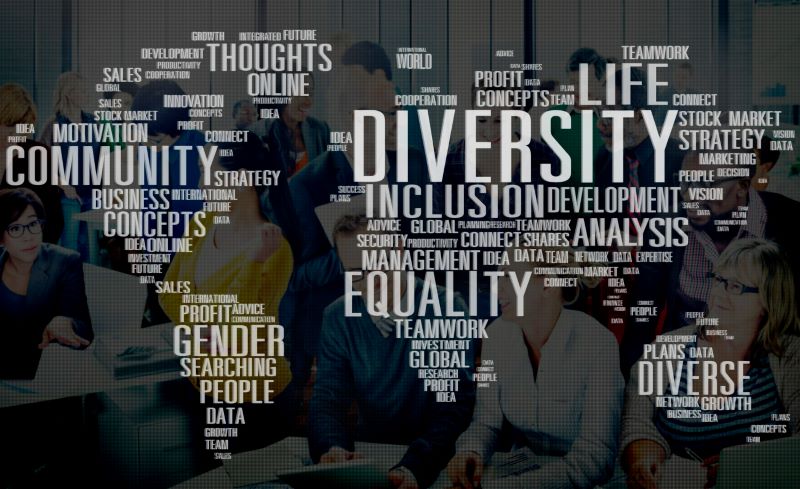
Challenges and Future Directions
While India has made significant progress in addressing DEIB in the workplace, obstacles remain. Some examples include:
- Unconscious bias can have an effect on employment and promotions. To combat this, organizations must institute training programmes and raise awareness of workplace bias.
- India’s diversity encompasses more than just gender and ethnicity. It encompasses linguistic, religious, and regional distinctions. Organizations must be sensitive to cultural differences and ensure that all employees feel valued.
- Measuring the impact of DEIB initiatives is difficult for many organizations. It is essential to establish precise metrics and continuously evaluate progress.
- The lack of representation of different communities at leadership levels remains a challenge, despite the progress made in hiring. Organizations must prioritize the development of diverse leadership talent channels.
In the future, addressing DEIB in the Indian workplace will necessitate an ongoing commitment, heightened awareness, and a willingness to adapt to the changing requirements of a diverse workforce.
Conclusion
DEIB in the workplace is both a moral necessity and a strategic advantage. Diversity, equity, inclusion, and employee belonging not only improve creativity, engagement, and decision-making, but also reflect the diversity of the market and satisfy legal and ethical obligations.
The unique context of India presents DEIB with both opportunities and challenges. Significant progress is being made in gender diversity, caste and ethnic diversity, and LGBTQ+ inclusion, but there is still much work to be done.
The positive impact of DEIB initiatives is illustrated by examples from companies such as Tata, Accenture, Infosys, Mahindra & Mahindra, and Swiggy. However, difficulties such as unconscious bias, cultural sensitivity, measuring impact, and leadership representation continue to exist.
Organizations that prioritize and effectively implement DEIB initiatives will be better positioned for success in a diverse and globalized world as India’s workforce continues to evolve. The journey towards a workplace that is more diverse, equitable, inclusive, and welcoming is ongoing, and it holds great promise for organizations, individuals, and society as a whole.
Connecting diverse talent with inclusive employers. Your next career move awaits!
In a world that’s increasingly embracing diversity and inclusivity, DEIJobs emerges as India’s pioneering platform dedicated to fostering connections between diverse job seekers and inclusive employers.
